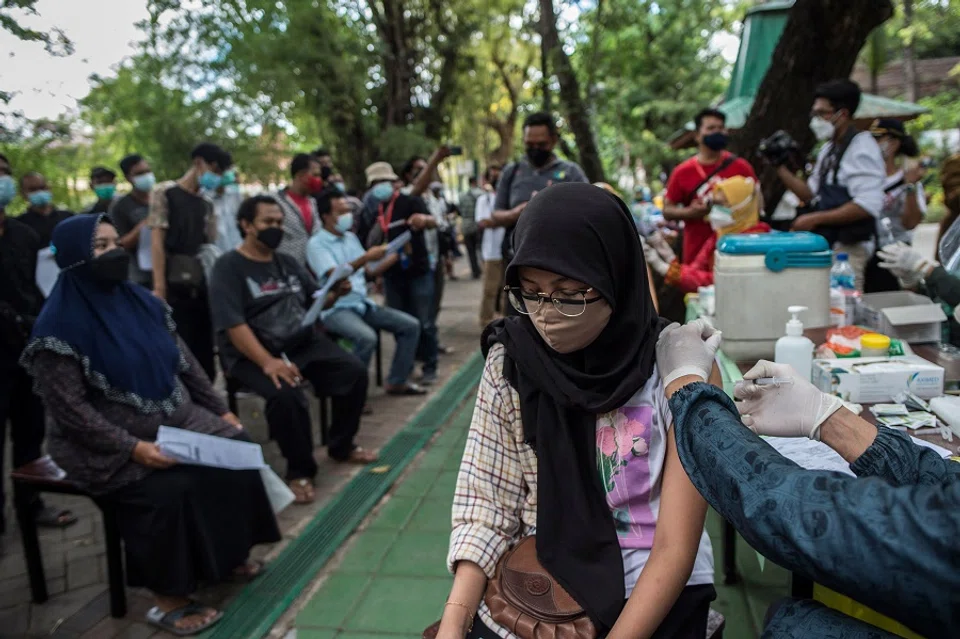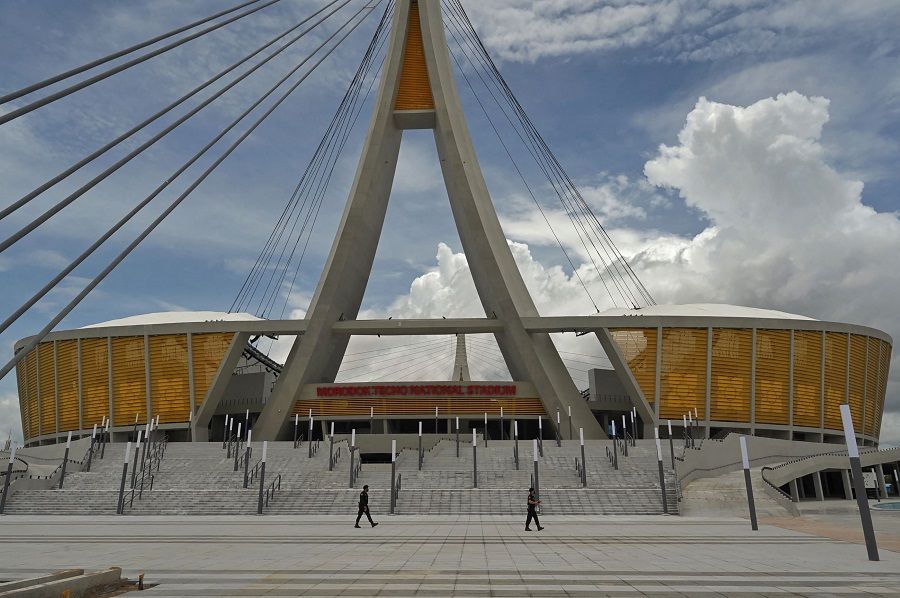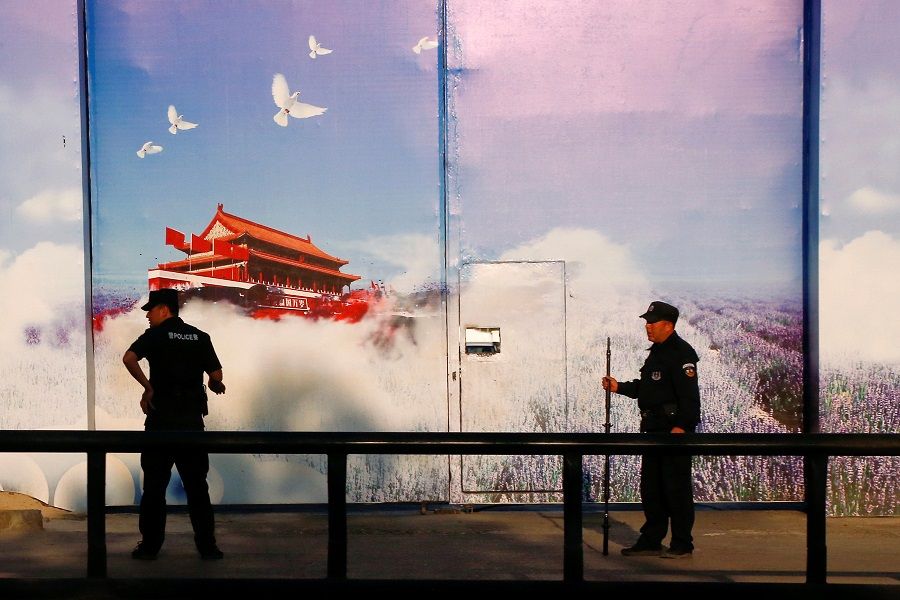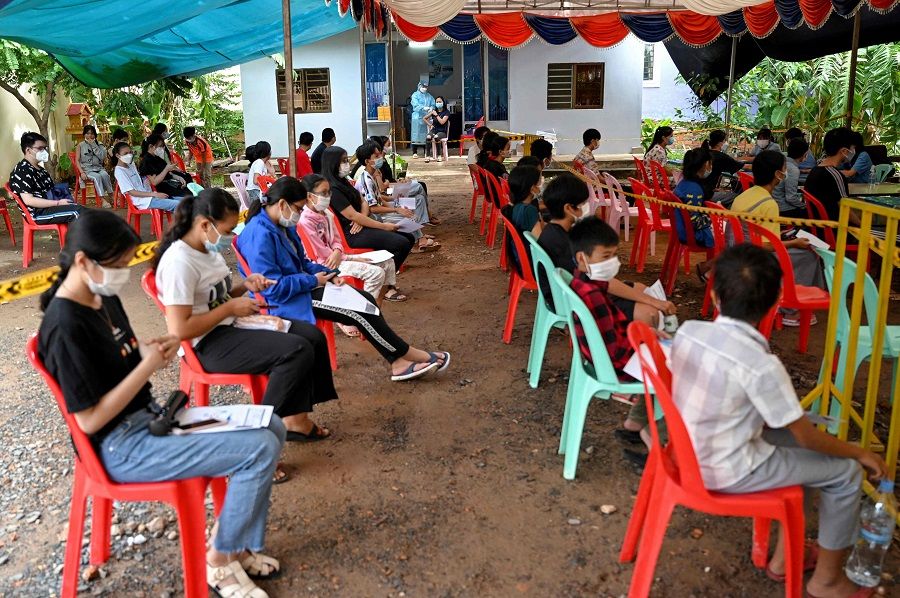China's vaccine diplomacy in Southeast Asia is working, but can it keep up the good work?

Analysts have said that the speedy rise of China's economic and military power in Asia will disrupt the international order. It is also believed that the Southeast Asian region will be destabilised. China's ambition of making Southeast Asia its sphere of influence is already making the region a dangerous geopolitical zone for great power rivalry especially after the US's foreign policy pivot to Asia in 2011. Although the rise of China has benefited most Southeast Asian nations greatly in terms of trade, investment and development assistance, anti-Chinese sentiment and suspicion of the Chinese government are also on the rise.
A 2021 survey report conducted by the ASEAN Studies Centre of the ISEAS-Yusof Ishak Institute found that in terms of the level of trust that China will "do the right thing" in contributing to global peace, security, prosperity and good governance, 37% of respondents had little trust in China while 26% had no trust at all. This is an indication that China is not readily accepted to play an inclusive leading role in Southeast Asia but it also reflects that China falls short in its soft power in improving its positive image in Southeast Asia.
The term soft power, coined by Joseph Nye in the late 1980s, refers to the use of attraction and persuasion to achieve a favourable outcome. Powers of attraction and persuasion are what China lacks as it often opts for methods that involve threatening and coercion.
China's quest for soft power
China's quest for soft power started as early as 2007 when then Chinese President Hu Jintao announced at the 17th National Congress of the Chinese Communist Party that the great rejuvenation of China will be accompanied by a thriving Chinese culture. However, China's push for soft power only took greater shape when Xi Jinping came to power in 2012. Media, movies, and cultural exchanges have been utilised to increase China's positive image. There are two mega tools that are perceived to be important instruments (although their effectiveness is questionable) in improving China's soft power: the Belt and Road Initiative (BRI) and Confucius Institutes (CIs).
However, the lack of transparency and accountability of Chinese projects under the BRI has rendered the effort less effective.

In 2013, China inaugurated its ambitious 21st century Silk Road dubbed as the BRI, which aimed to build connectivity across Asia and Europe. The initiative was believed to have an important complementary role for economic development and infrastructure development in Southeast Asia.
As stated in an ISEAS article, Southeast Asian countries will need US$3 trillion climate-adjusted infrastructure investments to sustain their current development from 2016 to 2030. International financial institutions including the World Bank and the Asian Development Bank were only able to provide US$55 billion in 2018. In this sense, China can fill the gap.
Chinese investments under the BRI have grown in Southeast Asia from US$16.8 billion in 2014 to US$29.3 billion in 2019 which constitutes almost 36% of BRI investments worldwide. While the initiative envisioned providing mutual financial benefits between China and ASEAN countries, it was also expected to improve China's positive image in the region and aimed to win the "hearts and minds" of Southeast Asian countries.
However, the lack of transparency and accountability of Chinese projects under the BRI has rendered the effort less effective. In the 2019 edition of the aforementioned survey conducted by ISEAS-Yusof Ishak Institute, 70% of the respondents (1,008 participants) urged their governments to be circumspect in dealing with BRI projects.
Besides the BRI, CIs have been playing a vital part to improve China's soft power in the world in general and in Southeast Asia in particular. Since 2004, there have been more than 500 CIs established around the world and around 40 CIs in Southeast Asia countries including Cambodia, Thailand, Singapore, and Vietnam.
The CI has been used as an educational centre to help spread the Chinese language and culture in the host country. Additionally, it also helps to facilitate trade and economic activity as it helps to share information and build connectivity. CIs seem to get special attention from Southeast Asia because they helps to develop human resources and capacity building in the host countries; however, their small capacity has limited China's projection of soft power in the region.
China's credentials as a communist state lead many to assume that China will try to replace the capitalist system with a new one that has less respect for human rights and democracy.
Counterproductive efforts
The Chinese government puts great effort into strengthening its positive image, spending US$10 billion annually. However, its soft power hardly increases. On the contrary, China's efforts to improve its soft power through the BRI and CIs are a drain on its resources and lead to suspicion of Chinese intentions in the host countries.
Such perceptions persist due to three factors. First, the frequent use of hard power to threaten Taiwan and others and the frequent use of military power to deal with border issues with its neighbours, particularly in the South China Sea. Second, China's credentials as a communist state lead many to assume that China will try to replace the capitalist system with a new one that has less respect for human rights and democracy. Finally, China's growing repression of different ethnicities in China including the Uighurs and Tibetans, in particular the presence of "re-education" camps, seems to reflect China's lack of concern for human rights and intolerance of ethnic minorities.
Understandably, these policies contribute largely to stabilising China's domestic situation and give China an upper hand in solving issues with its neighbouring countries. Nevertheless, the policies and actions also contribute to China's bad image and outweigh its effort to cultivate soft power.
China's soft power increased substantially in the midst of the Covid-19 pandemic as China's leadership appeared to have been more effective and timely in managing the spread of the virus.

Health diplomacy to increase China's soft power
According to the definition of soft power defined by Nye, China has an abundance of soft power tools at its disposal including culture, economic prowess and political influence. The Covid-19 pandemic further opens up new opportunities for China to restore its positive image and to win the hearts and minds of the populace in the region.
China's soft power increased substantially in the midst of the Covid-19 pandemic as China's leadership appeared to have been more effective and timely in managing the spread of the virus. On the international level, instead of playing the blame game and accusing others, China came across as being able and willing to step up to the role of providing support to the region.
China's health diplomacy, which is a part of China's BRI, has played a considerable role in helping the region to contain the pandemic. For instance, China provided a lot of medical equipment and vaccines to Southeast Asian countries. By June 2021, the amount of vaccines that China had donated to ASEAN countries was four times larger than that by the COVAX global initiative supported by the US and Western countries.
Cambodia is an example of a country which has had relative success in vaccination campaigns as the majority of people have been vaccinated. By September 2021, with most of the vaccine donated by China, two-third of the Cambodian population have received one shot while over 50% have received two doses and now the country is planning a third dose for their citizens. This high number of vaccinations means that Cambodia is the second most vaccinated country in Southeast Asia after a wealthy Singapore.
The earlier-mentioned survey report by the ISEAS-Yusof Ishak Institute also highlighted that China appears to be the most important ASEAN regional dialogue partner in terms of providing assistance and financial support to combat the Covid-19 pandemic. Over 44% of the respondents chose China as the dialogue partner that has contributed the most help to the region for Covid-19 while only 9.6% and 10.3% of the respondents chose the US and EU respectively. This indicates an acknowledgment of the Chinese role as a "regional responsible power" in Southeast Asia, regardless of its geopolitical and strategic reasons.
China needs to maintain its benevolent actions in SEA and refrain from using dominant behavior and assertiveness in Southeast Asia because that can offset the goodwill it has gained by helping to contain the pandemic in the region.

Staying benevolent
According to a recent ISEAS article on Chinese vaccine diplomacy in Southeast Asia, as of September 2021, China has provided 190 million doses of Sinovac and Sinopharm to Southeast Asian countries. While they have received some negative feedback in the West, homegrown Chinese vaccines, which have been approved by the World Health Organization, seem to be more well accepted in the Southeast Asian region.
Surveys cited in the article reflect a positive view of Chinese vaccines. In Indonesia, trust in Sinovac is higher (32.3%) than in other vaccines such as Pfizer (27.1%) and AstraZeneca (25.2%). China's Sinopharm also has a high preference rate (50%) in Thailand, especially for the second and third doses. Chinese vaccine brands are more well accepted in the Philippines as well. 39% of respondents there showed a preference for Sinovac compared to 32% for Pfizer and 22% for AstraZeneca. Though a mistrust of Chinese vaccines remains high in some countries such as Singapore and Vietnam, the high preference rate of Chinese vaccines among some Southeast Asian states indicates the rise of Chinese soft power in the region.
However, China needs to maintain its benevolent actions in SEA and refrain from using dominant behavior and assertiveness in Southeast Asia because that can offset the goodwill it has gained by helping to contain the pandemic in the region.
Overall, the Covid-19 pandemic has paved the way for China to revise and rejuvenate its soft power in the region. Soft power is key to China being a regional hegemon, and its role and responsibilities have to be legitimised by countries in the region. This will help China to rise peacefully and to be accepted by its Southeast Asian neighbours and the world. As Mencius, a Confucian scholar, famously put it: "To seek domination by force will simply turn the world against you." This suggests that China's rise must be peaceful and benevolent. Otherwise, its rise will be challenged by the world.
Related: US academic: Consequences if Southeast Asia fails to align with US on China policy | A tall order: US policy effort in SEA amid rising Chinese influence | Can the West's infrastructure plans rival China's BRI? | How China became Cambodia's important ally and largest donor | Confucius Institutes accepted in SEA and embraced by Cambodia, unlike in the West
